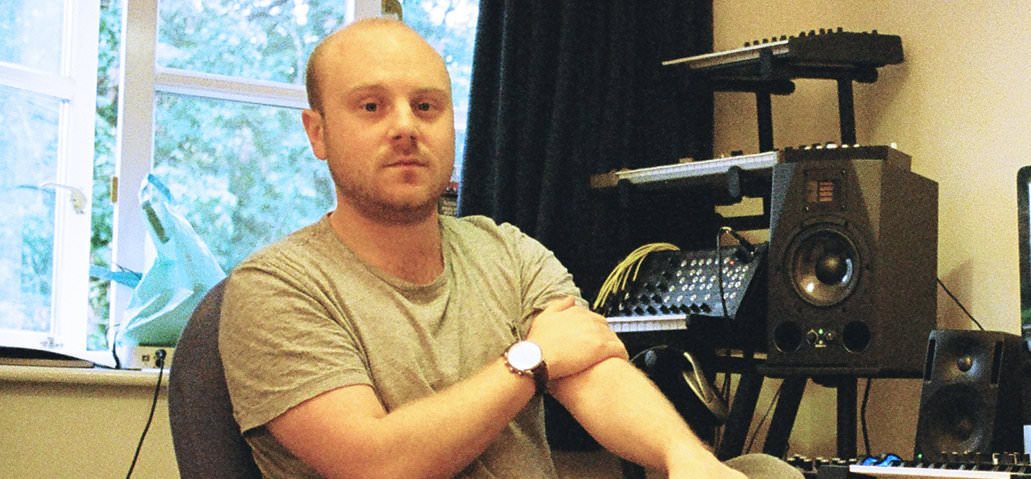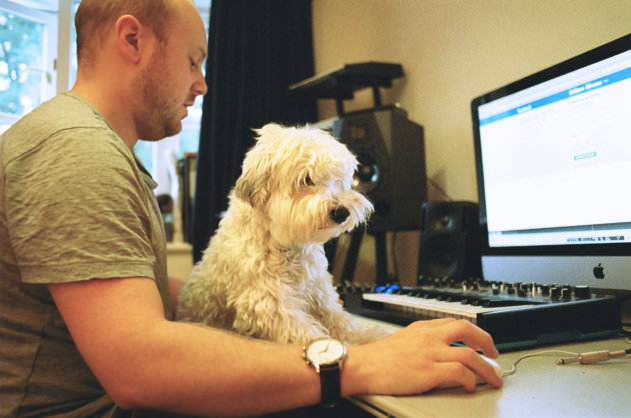How much do you think about the business side of things? The career part.
Not much. In terms of being a recording artist I’m already thinking about what I might do for my next album, so I suppose in that way I’m planning my career, but other than that I leave it to my manager.
It’s always a bit of a difficult subject to discuss, but the fact is that success probably won’t last forever. You might be one of the few artists who can turn it into a solid 20-, 30-year career, but…
Exactly. If you look at the percentage who have done that it’s not very much.
There are a lot of young kids making big money from dance music at the moment who probably think it’s going to last forever.
And it’s not going to. That’s why I avoided going down the commercial, major label pop-house route. It can easily suck up an artist and spit them out quite quickly if something doesn’t go right. It’s very hard to straddle underground and commercial worlds if your first single’s a number one hit. You might be really, really talented but it doesn’t look like you’ve put any work in. It looks like you’ve found a management company who sold you to a major label and then tried to get as much as they could out of you in a short space of time.
You never know what’s going to happen, but I think a lot of people in this business think it’s never going to end, and it so frequently does.
It’s not a very nice thing to think about.
But you’d be stupid not to. The main thing I’d want to do is move more into making music for other people, either writing for singers or maybe engineering, depending on where I am. I’ve done mixes for Hed Kandi and made happy hardcore for people in the past. I love DJing and being an artist in my own right but it’s like anything: to maintain being able to make stuff you love, you might have to compromise one day in the week and make a bit of money to live on. Having said that, I haven’t done it for three or four years, but I’m not ashamed of the fact that I did it.
I avoided going down the commercial, major label pop-house route. It can easily suck up an artist and spit them out quite quickly if something doesn’t go right.
 There are different levels to it, aren’t there? Some people are happy just to bang stuff out and make a few quid off it but it’s a different thing to treat it as an art form. You said earlier about making music that means something.
There are different levels to it, aren’t there? Some people are happy just to bang stuff out and make a few quid off it but it’s a different thing to treat it as an art form. You said earlier about making music that means something.
Yeah. You can be the most technical person in the world but that doesn’t mean you have the creative mind to turn it into… something that means something.
People are scared to use the word ‘art’ for dance music.
They are. I hesitated to say it then. A lot of people forget that all music’s an art form – they think of it as a commodity or just something to make someone dance. But actually it can be so much more than that. There’s no reason that it can’t be art and make someone dance.
Is there a track from the album that really represents your typical creative process?
It took me a while to get used to not starting with the drums then adding a bassline and a sample. I had to sit there and start thinking about melody first, usually with Omnisphere or a Rhodes sound, and then think in terms of a song-based arrangement. ‘I Want You’ started with the melody, then I put the kick drum and the bassline on it and that was my loop for about two days. The vocal only came much later. It was around the time I was relistening to a lot of Booka Shade, stuff like ‘In White Rooms’, so I was trying to take a lot of inspiration from that.
I’ve done mixes for Hed Kandi and made happy hardcore for people in the past... I’m not ashamed of the fact that I did it.
‘I Want You’ has got quite a sparse arrangement. There’s loads of space for each element.
Yeah, there’s not really much going on. That’s actually true with a lot of my music now. I used to cram things in but now I’m more worried about adding things that mean something to it and don’t just get lost. I was adding a lot of pointless stuff to try and fill the frequencies and make it sound big, but now I spend a lot more time mixing the elements so I have a lot less and try to make them all work together.
That often makes tracks sound louder anyway.
Yeah, I think that’s true. For that track I liked the idea of keeping it sparse to let the vocal do what it wants to do. It’s quite a minimal vocal arrangement anyway but it fits in nicely, nothing gets in the way. Before, I was more worried about that. My old tracks had shitloads of channels all over the place.


12.42 PM
Top guy. Can’t believe he didn’t know Let It Go was going to be huge!
09.54 PM
Nice interview.
06.43 AM
Lots of truth here.
09.27 AM
Lad.
03.09 AM
great interview…
“Yeah. You can be the most technical person in the world but that doesn’t mean you have the creative mind to turn it into… something that means something”
..somethin’ that means somethin’
I gotta kick somethin’ that means somethin’
somethin’ that means somethin’
somethin’ that means somethin’